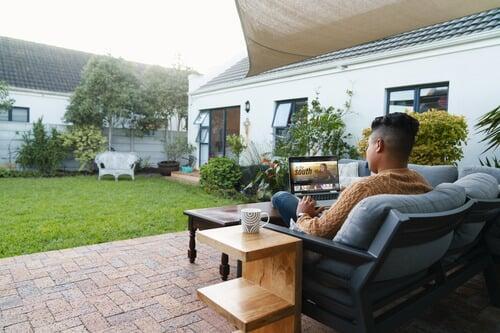As remote work continues to redefine how and where we work, California homeowners are turning to a creative and cost-effective solution: using an Accessory Dwelling Unit (ADU) as a home office. Whether it’s a sleek backyard studio or a converted garage, ADUs offer privacy, productivity, and the ultimate in convenience—all just steps away from your main house.
This blog explores the growing trend of ADUs as home offices in California, the benefits, legal considerations, and why a permitted ADU is key to long-term flexibility and value.

Why Use an ADU as a Home Office in California?
Here’s why ADUs are the ultimate home office upgrade:
As remote work becomes a norm in California’s tech, creative, and service industries, having a dedicated space that supports mental focus and work-life balance is no longer a luxury—it’s a necessity.
ADU Office vs. Room in the House: What’s the Difference?
| Feature | ADU Home Office | Spare Room in House |
|---|---|---|
| Privacy | High – separate structure or entry | Low – part of household flow |
| Noise Reduction | Superior – isolated from main living space | Limited – shared walls and traffic |
| Zoning Compliance | Fully legal if permitted | Not subject to ADU codes |
| Potential Future Use | Can convert to rental or guest house | Limited reusability |
| Tax Deduction Options | Greater for detached units with business use | Limited unless fully dedicated |
Design Ideas for a Home Office ADU
Detached Studio Office: Built in your backyard with soundproofing, large windows, and a separate entrance.
Garage Conversion ADU: Ideal for an open floor plan workspace with ample room for desks, shelves, and storage.
Attached ADU Office: Great for dual use—work by day, guest stay by night (with smart partitions).
Creative Pod: Small, high-efficiency layout for Zoom calls, writing, design, or therapy sessions.
Benefits of Building a Permitted ADU in California
Making sure your ADU is legally permitted has big advantages—especially if you’re using it for professional purposes:
✅ Eligible for property tax reassessment advantages
✅ Protects future resale value
✅ Allows for potential conversion to rental or guest unit
✅ Qualifies for insurance, depreciation, and tax deductions
✅ Meets California energy, fire, and safety codes
Home Office Tax Considerations for ADUs
If your ADU is used exclusively and regularly for business, you may be eligible for home office deductions, including:
Depreciation of the structure
Utility costs
Maintenance and repairs
Internet and equipment expenses
Note: To qualify, the space must be clearly defined and used only for business. Dual-use spaces typically don’t qualify under IRS rules.
Legal & Zoning Considerations in California
Before starting your ADU home office project, check local requirements:
Permits Required: Always obtain proper permits to avoid fines and ensure insurability.
Zoning Compliance: ADUs must meet California and city-specific ADU regulations.
Occupancy Limits: You may need to comply with lot coverage, setbacks, and utility tie-in guidelines.
Fortunately, California’s pro-ADU stance (updated laws like SB 9 and AB 2221) make it easier than ever to build and use ADUs for flexible living and working spaces.

